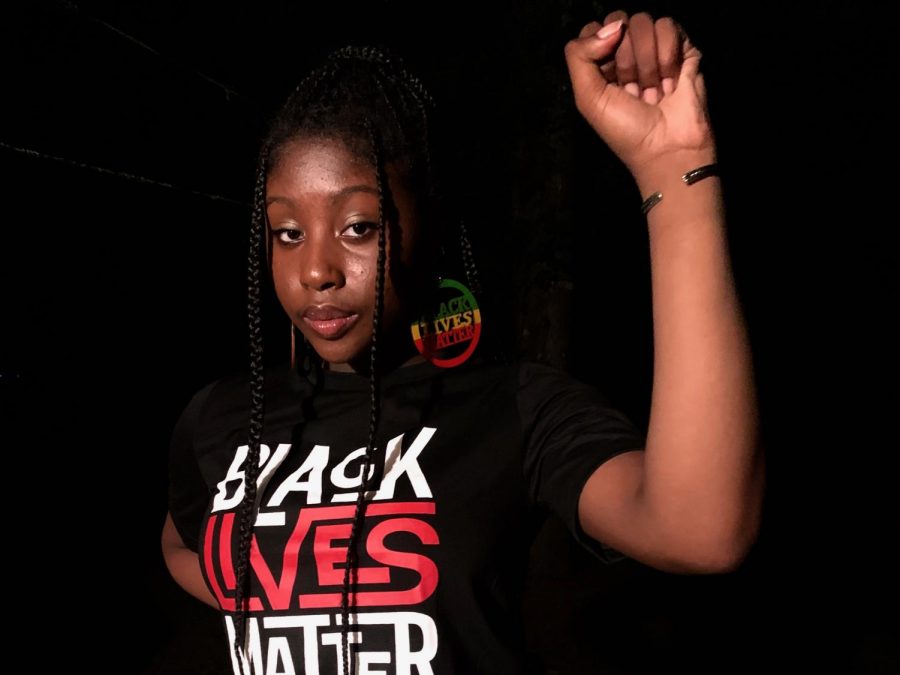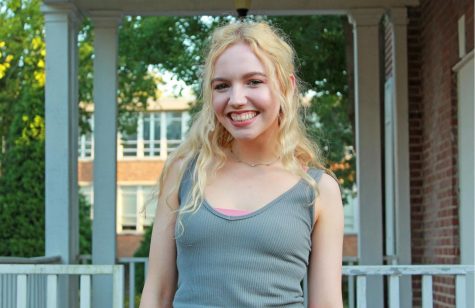What Black Lives Matter means to senior Niyah Lockett
Having lived in Mississippi her whole life, senior Niyah Lockett shares her passion for the Black Lives Matter movement.
November 12, 2020
“It breaks my heart to see that there is so much, there are so many steps that America has to take before it’s a good place.”
Niyah Lockett is from Aberdeen, Miss, and transferred to MSMS from Aberdeen High. She has lived in Mississippi her entire life. She is President of the Black Student Alliance and Vice President of Young Democrats.
Lockett, like all other Black Mississippians, has faced much racism and discrimination in her life. Her experience as a Black woman in Mississippi, especially during the Black Lives Matter movement, mirrors that of many.
The Black Lives Matter movement gained support this summer, resulting in nation-wide protests against white supremacy and institutional racism. Lockett’s experience offers much insight into the rarely discussed emotions and memories of being black in the South.
“Growing up as a Black woman in Mississippi has made me extremely resilient,” Lockett said. “Having to fight against racial injustice and having to push through all of the backlash I get has made me understand that -even when it seems like you aren’t making progress- you have to keep fighting. If you don’t fight for yourself no one will.”
Lockett believes in the importance of civil liberty and fully supports Black Lives Matter, as she believes that it is helping Americans understand the reality that Black people have to face daily.
“I wholeheartedly support the Black Lives Matter movement. It’s making people take off their rose-colored glasses and see the problems in our country. We’re showing people that institutional racism does exist and actively oppresses people of color,” Lockett said.
Major news outlets often discuss the national outrage that George Floyd’s death created, but rarely do they discuss the psychological toll and fear that Black people must endure because of his police-caused death.
“When I heard about George Floyd’s murder I refused to watch any videos showing what happened for a long time. But one day I sat down and I was like, ‘I need to see this. This is important for me to understand.’ When I watched the video I broke down. Tears started streaming down my face uncontrollably,” Lockett said. “Every time I think about things like this I think about my brother. I think about how that could be him at any given moment. I think about how [the police are] not going to see that he is a first-year dental student who goes to church every Sunday. They’re not going to see that. They’re going to automatically assume that he’s a threat. He could become the next hashtag. That is my biggest fear in life,” Lockett said.
Young Black males are 21 times as likely as young white males to be killed by police, and even this statistic only reports a small percentage of the actual data. Many police departments don’t record fatal shooting incidents. For instance, Florida departments stopped filing reports in 1997 and New York City stopped reporting in 2007.
“It’s scary to know that there are so many who want to uphold the institution of racism. It feels like you’re pushing against a brick wall,” Lockett said.
While Black Lives Matter brought about a lot of change, it also revealed who is opposed to that change.
“Before the Black Lives Matter movement gained support, I hadn’t realized how many racist people there were in Mississippi or how many people feel like racism is no longer a problem,” Lockett said.
69% of Americans believe Black people and other minorities have the same equality and experience as their white peers, even though “federal prosecutors are almost twice as likely to file charges carrying mandatory minimum sentences for African Americans than whites accused of the same crimes.”
Lockett said, “When I was younger I had this outlook that everyone was good. I thought that everyone wanted the best for me. I would cry when I heard the national anthem; I was so in love with the idea of America being this perfect place. As I got older I started to realize how many problems America has, and I also realized that a lot of adults still had my childhood outlook.”
The statistics back up the reality of institutional racism, from employment to education to the justice system. A Black college student has the same chances of obtaining a job as white high school dropout, poor-white school districts get $150 less per child than the national average. Those poor white school districts are still receiving nearly $1,500 more than POC school districts, and Black people are more likely than white people to be denied bail and they are more likely to receive harsher charges and sentences than their white counterparts who committed the same offenses. Despite these statistics, the existence of institutional racism remains a central discussion in American politics, leading to organizations like Black Lives Matter.
Lockett emphasized the importance of personal activism, stating, “Protest. Share social media posts about activism. Raise awareness. Host fundraisers for the Equal Justice Initiative or Black Lives Matter. But the most important thing you can do is vote. Vote for people who want to change America, who want to change institutional racism.”
Lockett continues to raise awareness about Black Lives Matter through the MSMS chapter of Black Student Alliance and Young Democrats, as well as engaging in personal conversations about institutional racism every day.
You can learn more about Black Lives Matter here.









